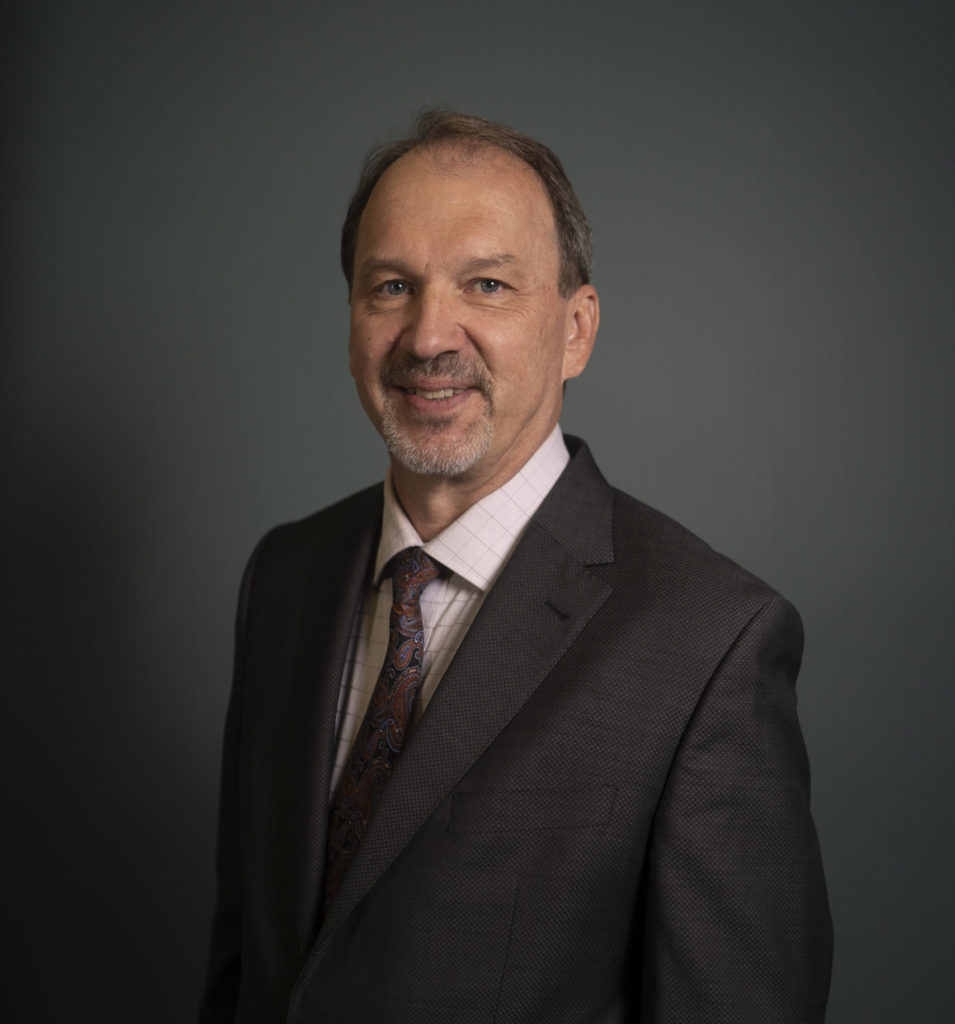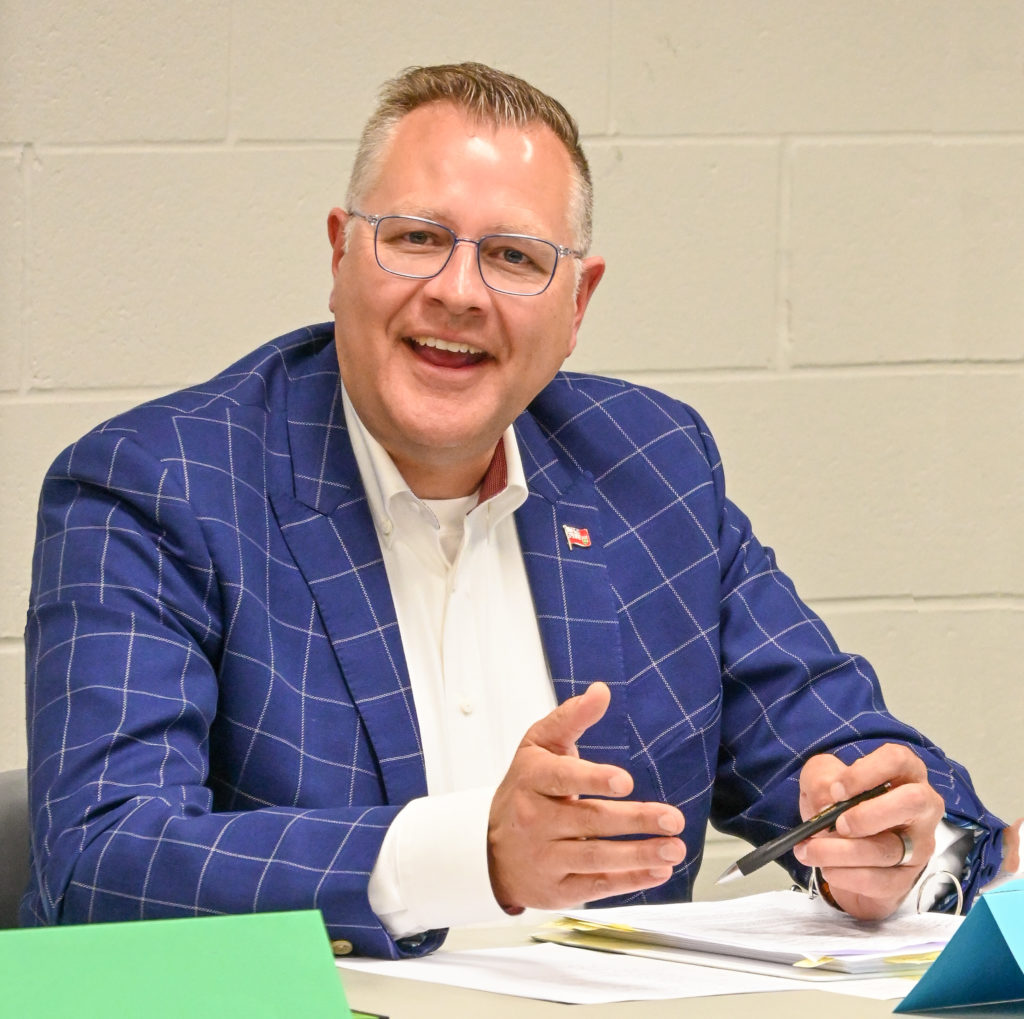Will Bouma, current Member of Provincial Parliament (MPP) for Brant-Brantford is aiming for re-election when residents head to the polls on Thursday, June 2. Six candidates will oppose Bouma on election night. Check out profiles on the candidates running in the 2022 Provincial Election.

Karleigh Csordas, Green Party of Ontario
How long have you been with the party?
I was born and raised in Brantford and Paris, and I have been involved in green community initiatives from a young age, particularly focusing on waste reduction, cleanup and diversion from landfill. I have supported previous Green Party campaigns over the years, and some people may remember me from last fall when I ran federally for the Green Party of Canada for the first time.
Why did you choose to run in this election? Was there any personal motivation?
I want to encourage more people of my generation to get informed and to get involved in politics, and to be a breath of fresh air in the political arena by doing politics differently. I want us to stay hopeful for the future. Our shared purpose, across party lines, should be to leave a liveable planet and a just society for our children and grandchildren. Our experience in the pandemic has shown us just how fast we can mobilize when we put our mind to it. We need to take this same kind of imperative action for healthcare, affordable housing, the climate crisis, protecting farmland and drinking water, and so much more.
What concerns have you heard at the door?
Affordable housing, mental health and the climate crisis are what people are talking to me about the most. In cities across Ontario, rental housing is not affordable for minimum wage workers. In Toronto, it would take the average person 32 years to save for a down-payment. Getting into home ownership is next to impossible for my generation, including here in Brantford Brant. Affordable housing is a basic human right and home ownership shouldn’t be out of reach for any generation.
My generation is winding up living in our parents’ basements despite years of post-secondary education. We are facing the increasing cost and impacts of the climate crisis, student loans, urban sprawl, global economic uncertainty… Add it all up and it is easy to see how we are also facing a mental health crisis. Greens see how housing affordability issues, climate action and mental health go hand in hand, and can all be addressed without paving over precious farmland and green space.
What issues have you seen in Brant-Brantford?
The climate crisis affects us right here in Brantford-Brant as much as anywhere else. I was proud to help champion the Declaration of a Climate Emergency and Imperative Action here in Brantford. As a result of that initiative, the City of Brantford has developed a really good climate action plan. The next phase is to get more people involved in climate action – there’s so much we can do at home that may seem small, but when taken collectively, make a big difference! And of course, we have to hold Brantford Council to keeping its commitments and meeting its targets.
If elected, what priorities would you pursue?
In addition to immediate action on the housing affordability crisis and the climate crisis, I would want to see immediate action to address the crisis in long-term care. I work in a long-term care home and I see the crisis every day. Staffing shortages and poor consistency of care, long waits for response to call buttons and rushed care for residents. There is no room for profit in healthcare. I commit to prioritize care over profit, and to immediately implement recommendations from the LTC COVID-19 Commission. We will hire more staff and commit to a minimum of four hours of care for LTC residents now, not four years from now.
Affordability is a theme in this election, what examples have people expressed and how would you address them?
I hear a lot about wages not keeping up with the cost of living and especially, the cost of housing. At the same time, I hear from business that they are unable to attract and retain workers. The Green Party’s solution is to improve urban planning to build connected, livable communities. We need to make it safer and easier for people to access key goods and services other than by car. There is so much we can do. For example:
– establishing protected bike lanes and including adaptive bikes and trikes so that cycling can be available to seniors and people with disabilities;
– making bike lanes, patios and green space a priority over street parking; and
– changing our planning and zoning priorities to increase the number of people living within a 15 minute walk or bike of the stores and services that they want.
The Green Party will open up more opportunities for small business to thrive. We will make it easier for small business to pay a living wage by lowering the payroll taxes they pay, and support Ontario’s transition to being leaders in the global green economy. Connected, livable communities where people have good jobs that pay living wages – that’s how the Green’s propose to make life more affordable and prosperous for everyone.
Housing is a fundamental concern for many people, how would you address this issue?
The Green Party plan will solve the housing crisis in Ontario without paving over precious farmland and green space. Instead of building more highways that we don’t need and can’t afford as the premier wants to do, the Green Party will focus on making better use of our already developed urban spaces, which is ultimately much less expensive for municipalities to service and therefore more affordable for prospective homeowners to buy.
We need mixed diverse neighbourhoods with townhomes, laneway suites, co-ops and yes, even tiny homes, all of which will make homeownership more accessible, livable and affordable. We must start thinking about jobs and teaching mental health, childcare and the arts as low carbon jobs. Because they are. We must invest in protecting nature, creating jobs in the global green economy, outdoor recreation and sustainable local food production. This is how we are going to fix the housing affordability crisis and tackle mental health hand in hand.
The pandemic has been with us for 2 years, was it handled adequately, and could we have done better?
The pandemic could have been handled better for sure. I think a lot more could have been done to support workers and local businesses which are really the backbone of our local economies.
Ontario really failed workers and their families by not providing paid sick days much earlier in the pandemic. Despite repeated calls from medical experts, the pandemic was allowed to spread much more quickly because workers were forced to choose between risking their health and that of their co-workers, or risking their incomes and in many cases, their jobs.
Frontline workers who continued to go to work every day despite the risks were given so called “hero pay” only to see wash it away with the first wave, and never come back. And our healthcare heroes? Despite working longer and harder hours, dealing with constant short staffing, their pay is capped at 1% annual increases, which was below inflation even before it started skyrocketing over 5%. We need to address the nursing shortage by immediately:
1) Repeal Bill 124 and let the workers negotiate fair wages which at least keep up with inflation;
2) Implement an immediate hourly premium for nurses working on short staffed units; and
3) Implement a comprehensive retention and recruitment strategy to increase the supply of nurse practitioners by 50% by 2030.
How would you describe yourself to residents?
I would describe myself as a kind, busy but genuine person. I love to be around people, care deeply about all people, and find myself energized and motivated by meeting and building relationships with new people! I am dependable and reliable. Honouring my commitments and promises is at the heart of who I am (and I tend to have long lasting friendships with those of similar qualities!). I enjoy giving back to our community through hands-on initiatives and always try to look on the bright side of things.

Harvey Bischof, Ontario New Democratic Party
How long have you been with the party?
About a year. My previous position as President of OSSTF required political neutrality.
Why did you choose to run in this election? Was there any personal motivation?
I spent my career advocating for a strong publicly-funded education system because, at its best, education is a critical investment in students and in the province’s civic, social, and economic future. When I retired, I still had a strong motivation to contribute positively to the community in which I live. I’m convinced we can do so much better for everyday working people and I have the skills and experiences to take on that work.
What concerns have you heard at the door?
Overwhelmingly, I hear about health-care and affordability. People see our health-care system driven virtually to its knees by underfunding and the disrespect for health-care workers as expressed through the Ford government’s low-wage policy found in Bill 124. People know that even if they don’t need medical assistance right now, they or their loved ones eventually will. They know people who are waiting, for extended periods of time, in pain because their hip- or knee-replacement surgery has been postponed. And they don’t understand why dental care and mental health haven’t been treated as equally important to physical health.
Between the costs of housing, groceries, gasoline, child care, and so on, people are being squeezed to the point that their choices are being severely limited and they want someone to do something about it.
What issues have you seen in Brant-Brantford?
Brantford-Brant certainly shares the major concerns that are found across the province but I have also heard very specific references to the high cost of housing, homelessness, and the opioid crisis. The Ontario NDP platform has solutions to these issues that the last couple of governments have simply chosen not to pursue. We treat mental health care as health care and bring counselling and therapy services into OHIP. We will bring back rent controls and build affordable housing. And we will declare the opioid crisis a public health emergency while investing in rehabilitation, detox centres, and harm reduction strategies.
If elected, what priorities would you pursue?
I would insist that Brantford-Brant gets its share of provincial resources to tackle the challenges we are facing. For far too long, we have been short-changed when it comes to health care spending. The recent announcement of a grant to begin the planning process for a hospital to be rebuilt in, perhaps, ten years, does nothing to ensure the community that we are being prioritized by the last two governments. I would fight for our share of affordable housing, including supportive housing.
Affordability is a theme in this election, what examples have people expressed and how would you address them?
I have talked to so many people that either have to stay living with their parents or move back in with them because they cannot afford housing. Home ownership should not be a fading dream for the young people who tell me they fear not being able to provide for their children the same way their parents provided for them. And renters shouldn’t be subject to wildly escalating prices and the insecurity of “renovictions”.
Housing is a fundamental concern for many people, how would you address this issue?
The Ontario NDP has a robust plan to make housing affordable, including committing to the building of 1.5 million new homes in the next decade, equity loans for first-time purchasers, and taxing speculators who drive regular folks from the market. We will implement real rent controls so the cost of renting does not skyrocket out of control and we’ll provide direct assistance to over 300,000 Ontarians who need help with their rent costs.
The pandemic has been with us for 2 years, was it handled adequately, and could we have done better?
I am convinced there are a number of ways that the pandemic could have been better handled including following the advice of SickKids Hospital in order to keep schools and their communities safer. Big box stores should not have been prioritized over small, local businesses, and the financial support for small businesses could have been rolled-out far more effectively, including not providing grants to businesses that didn’t meet the criteria or, in some cases, aren’t even located in Ontario.
That’s why the NDP is committed to a full, independent inquiry into the pandemic, not to lay blame but to ensure that we have the opportunity to learn lessons and apply them in the future in similar circumstances.
How would you describe yourself to residents?
I live and have raised children in this community; I care about it and want to serve its people. I am an experienced advocate for those I represent, with significant experience in government, public, and media relations. I’m a pragmatist. I will listen to the people of the riding and find ways to reach solutions that meet their needs. I will prioritize everyday working people rather than the wealthy and large corporations.

Ruby Toor, Ontario Liberal Party
How long have you been with the party?
I have been with the party since 2000.
Why did you choose to run in this election? Was there any personal motivation?
I have always been involved with the community whether as a volunteer- sitting on many committees, Alzheimer society, prevention of elder abuse Ontario Retirement Home Regulatory Authority, Grand River Council of Aging, Brant United Way citizen review committee and then later on the boards bringing knowledge and skill set to be a valuable member on the boards like Brant United Way, Board of Public Health and as President of C.A.R.P chapter 17.
No, I don’t have any personal motivation. I am an advocate for Seniors’ and Health.
What concerns have you heard at the door?
I am a good and an empathetic listener and have been involved in community from grass root level. During my campaign and door knocking health, affordability and housing is the main concern.
What issues have you seen in Brant-Brantford?
People of Brantford-Brant say “they don’t want “Doug Ford” back. Ford Govt. has done cuts everywhere, Nursing home crisis, businesses need to bounce back and need help, housing prices are skyrocketed, rents are unaffordable, schools are not safe and secure- poor ventilation, above all Mental health is affected a big time.
If elected, what priorities would you pursue?
My number one priority will be to ensure our constituents have access to my office anytime and I will have an open-door policy. Along with:
- I will make sure seniors are living in the comfort of their homes as long as they can, with more home support.
- Our children are safe in schools and smaller class sizes with more teachers and educators
- Build non-profit long term care spaces and assisted living spaces with more home care help.
- Increase wages to “fair wage” and further expand on “ living wage”
- Give Small businesses the support to bunce back and sustain the business.
- Liberals will build 1.5 million new homes in next 10 yrs creating 150,000 new jobs
- Equal pay for equal work for women and expand on women’s health.
- Mental health needs to be addressed in schools, community, and seniors.
- Bring basic income pilot project back to help those who need help.
Affordability is a theme in this election, what examples have people expressed and how would you address them?
Yes, people are worried about making their ends meet due to inflation rate, housing non-affordability, not enough income and burnt out due to pandemic.
As mentioned above, Liberals will build 1.5 million homes in new smart and complete communities.
Higher and “living wages” based on region.
No HST on ready to eat food under $20 so people can enjoy good “Gourmet” meal like “Rotisserie chicken” and healthy lunch.
$1 ride on all public transit and free for veterans.
All day childcare program at $10 a day for those who work non-transitional hours.
Housing is a fundamental concern for many people, how would you address this issue?
People of Ontario has a fundamental right for having a roof on their head they call “Home”. Liberals will build 1.5 million affordable, complete, and smart housing communities. I will work with municipalities to fast track the projects.
The pandemic has been with us for 2 years, was it handled adequately, and could we have done better?
Ford Govt. has made cuts in staffing and funding prior to pandemic hit and then in March 2020 COVID-19 hit, harming our seniors in Long Term Care homes so much that army needed to be called in.
Continuous changing directions of opening and closing businesses closed many small businesses for ever.
Schools were not given proper support with PPE and ventilation system. Parents remained confused till last minute for the directions from ministries and many didn’t send their kids to school worrying about Covid. This has affected mental health of children.
There was no rent control in place hence made it difficult for many to find a proper place to live. Homelessness has increased due to not enough affordable and supportive housing.
How would you describe yourself to residents?
I am a people person and lived in this community for last 30 years, raised my children and helped my husband running a small business. My academic background is in Health. I am now working as an Executive Director in a retirement home for last 20 yrs. and a strong advocate for seniors and health. I am an active listener and have a strong voice to represent constituents in Queens Park once I am your MPP.

Will Bouma, Progressive Conservative Party of Ontario
How long have you been with the party?
I’ve been a Conservative since I was a teenager. I became involved in the local party when we moved to St. George in 2006. In 2017 I successfully sought the PC nomination for the 2018 provincial election.
Why did you choose to run in this election? Was there any personal motivation?
Sixteen years ago, my wife Joni and I picked this community as the right place to establish our optometry business and raise our family. Over the years I’ve been deeply involved in the community as a county councillor, volunteer fire fighter and community volunteer. I know the riding and its people. I understand its needs and how to meet them.
I’m motivated by two simple ideas:
- Leave things better than I found them.
- To treat others as I want to be treated.
What concerns have you heard at the door?
People are talking to me about affordability, including the high cost of housing. Seniors want to see improvements in long-term care and are happy that we’re creating 840 new and redeveloped long-term care beds in Brantford-Brant.
Health care is also an important issue. Our government has committed $2.5 million to plan a new Brantford General Hospital and improve Willett Hospital.
What issues have you seen in Brant-Brantford?
When I was first elected we had several important local issues to tackle. We’re addressing infrastructure needs with a new elementary school and a new trades-oriented high school. We’ve started the process to build a new Brantford General Hospital.
We’ve put an emphasis on creating opportunities in the trades for young people, including support for new programs at Conestoga College and Six Nations Polytech.
We supported Brantford and Brant during the pandemic with money to keep transit and other municipal services running. We supported small businesses with tax cuts and financial aid to help them keep their doors open.
If re-elected, what priorities would you pursue?
We have to continue pushing the hospital project forward and ensure the community is onside and ready to support it. The Ontario economy is returning to health and we have to keep it on track. That means controlling taxes, reducing red tape and supporting companies as they create jobs.
Community safety is important and we will continue to back Brantford and Brant police services as they deal with guns, drugs and gangs.
We’ve taken steps to address mental health and drug addictions, with support for treatment facilities, but there is more to be done.
Affordability is a theme in this election, what examples have people expressed and how would you address them?
Our government has put more money into the pockets of Brantford-Brant residents so they can spend it on what’s important to them. The elimination of licence sticker fees and the 5.7 a litre cut in gas taxes for six months starting in July will help.
Housing is a fundamental concern for many people, how would you address this issue?
The fact is, the construction of units isn’t keeping up with population growth. We need more than 650,000 new units right now just to house the population we have. And we’re expecting the population of Ontario to grow by a million people over the next five years. They need places to live, too.
In 2018 we made changes in the rental system. The old rules discouraged builders from putting up new rental units. Since we made those changes the number of rental unit starts has been higher than in 30 years. That will help make it easier to find an affordable place.
When it comes to home ownership, we have started to hack away at the red tape and restrictions that were limiting construction. When supplies are limited, prices rise. Delays in approvals can add tens of thousands of dollars to the cost of a new house.
The pandemic has been with us for 2 years, was it handled adequately, and could we have done better?
The pandemic was an unprecedented event in the modern day.
Not everyone was happy with every decision. Some thought the rules were too tight, some thought they were too loose. But at every step of the way we followed the advice of medical experts and the Chief Medical Officer of Health.
From the start of the pandemic we took tremendous steps to protect our people, our communities and our economy. To date we have invested nearly $20 billion in responding to the pandemic. That includes over $3.4 billion in support to small businesses, including a reduction in corporate income tax and money to help cover fixed costs such as property taxes, electricity and natural gas bills. We will continue to be the champion of small business.
We have invested in health care and its front-line workers by investing in new long-term care beds and hospital improvements. In our schools, ventilation has been improved and tutoring programs are in place to help students recover from the pandemic.
Our Plan to Stay Open will continue to build our capacity to respond to this and other threats. We’re expanding our health care workforce and shoring up domestic production of critical supplies.
How would you describe yourself to residents?
In my professional and private life I have always tried to help others.
As an optometrist in St. George, I’ve helped thousands of people to see better.
As a volunteer fighter and community volunteer I’ve helped to make my community safer, stronger and healthier.
I like to fix things. I don’t have all the answers, but as an MPP I meet a lot of people who know how to get things done. Some of the best moments in this job come when I can bring people together to find solutions to problems.